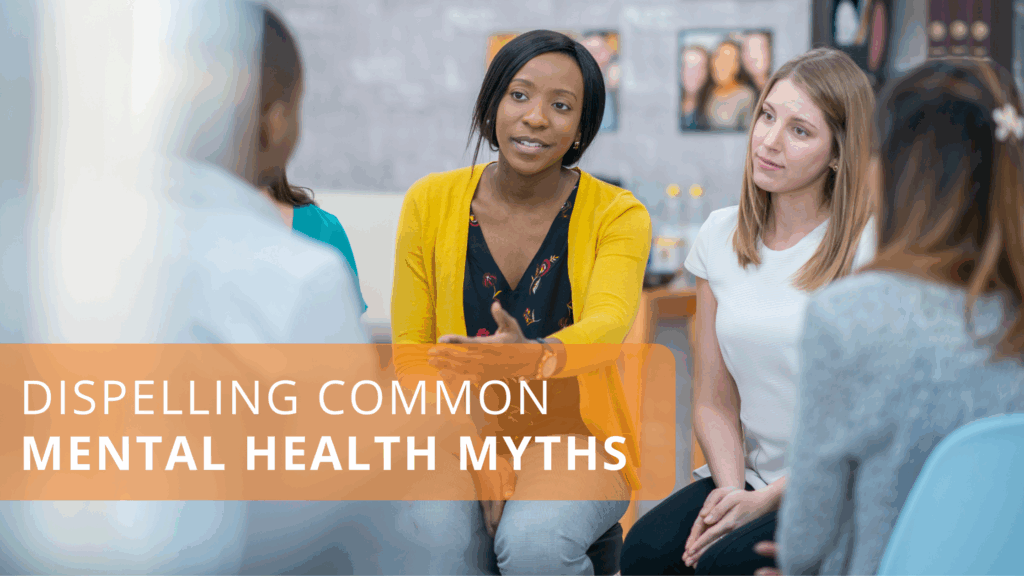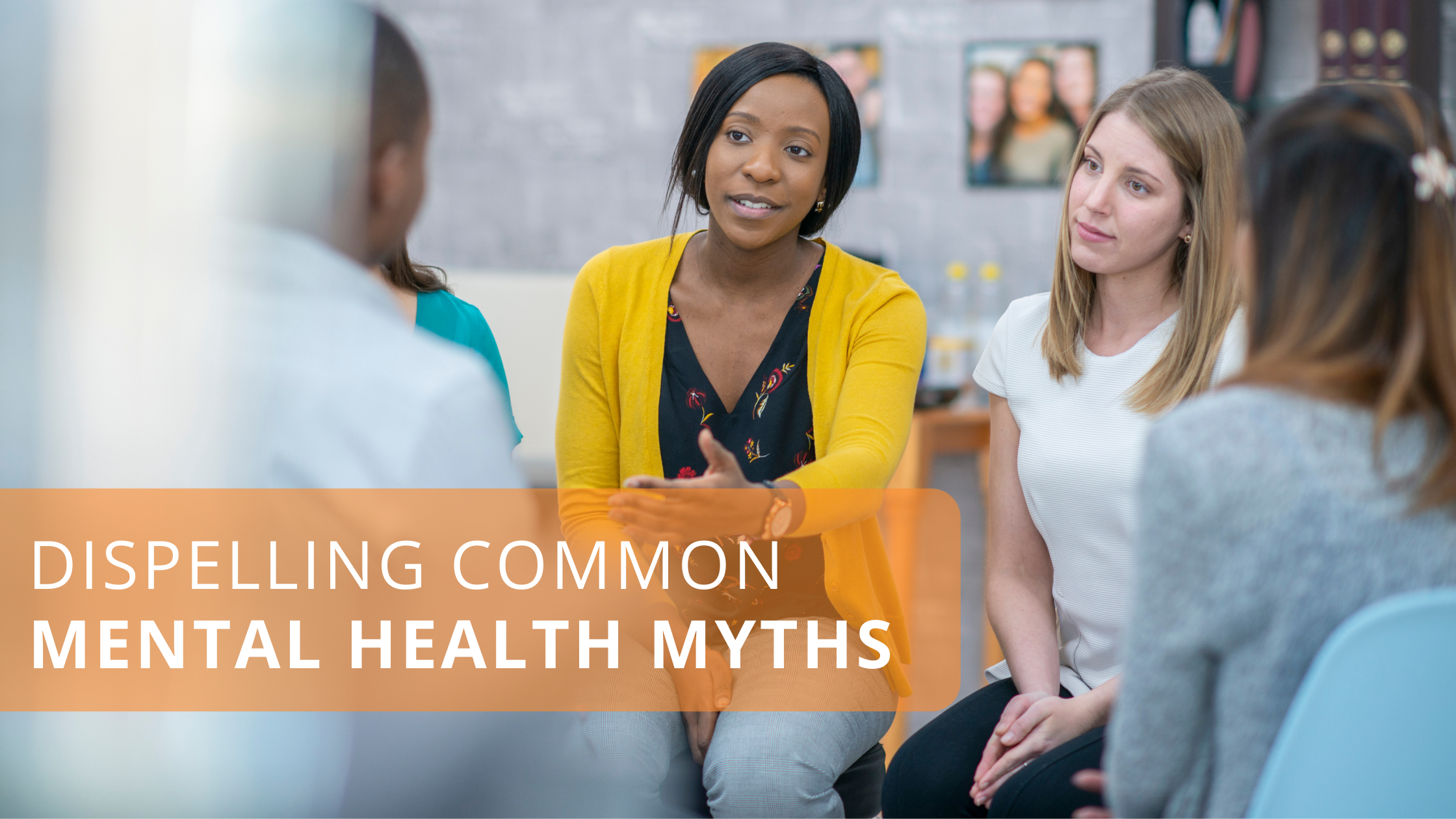
What do you think is the most common mental health myth?
Misinformation surrounding topics on mental health can be confusing to people facing a mental illness and their loved ones. It is important to address these myths so people can recognize symptoms of mental illness and move toward a healthy lifestyle. Below are mental health myths we can strive to eliminate.
Myth: Children do not experience mental health problems.
Half of all mental disorders begin by age 14 and three-quarters begin by age 24. Children may also experience challenges in navigating relationships with peers, family, and teachers. This is why it is important to introduce mental health topics early. Sometimes recognizing a mental health issue in a child starts with a conversation. Talking with your child about how they experience different emotions can greatly influence the way they treat their mental health as they grow.
To find more tips on talking to young children about their mental health, visit The National Child Traumatic Stress Network online. This network has many resources on child and youth trauma covering various types. Their resources are available in multiple languages. The National Child Traumatic Stress Network resources can be found HERE.
Myth: Accessing mental health support and resources is expensive.
There are resources available for people that are in crisis or may just need a safe space to communicate at no cost. These resources can also offer referrals to further professional aid if needed.
- The National Suicide Prevention Lifeline is 1–800–273–TALK (1-800-273-8255). This hotline offers support directly to individuals or concerned family and friends. Any caller who feels sad, hopeless, or suicidal connects with a professional who will talk with them about what they are feeling. Also, anyone interested in mental health treatment referrals can call the Lifeline.
- You can access the Crisis Text Line by texting “HOME” to 741741. This organization helps people with mental health challenges by connecting them to trained crisis volunteers. Confidential advice, support, and referrals are all provided through texts. There is also an online chat option available when visiting HERE.
- The Trevor Project offers support to youth who are in crisis, feeling suicidal, or in need of a safe and judgment free place to talk. They specialize in supporting the LGBTQI+ community. Counselors are available to connect via phone call, chat, or text. You can learn more about The Trevor Project HERE.
- SC HOPES is a South Carolina mental health support line that aids residents within the state. This support line offers help to people in need of mental health or substance use services. Callers are connected with trained clinicians who can address their specific needs. This toll-free number is accessible 24 hours per day. Call 1-844-724-6737 to use this South Carolina Department of Mental Health and Department of Alcohol and Other Drug Abuse Services resource.
Myth: Only therapists can offer mental health support to a person in crisis.
In the United States, only 41% of people who had a mental disorder in the past year received professional health care or other services. Friends and family can be a big influence on the type of mental health support a person receives. You can call a loved one to let them know you are available to help. Next, you can refer them to mental health services or support groups. Lastly, you can treat them with respect like anyone else. This helps to remind your loved ones that their diagnosis does not define them. Here at SC Thrive we encourage everyone to take a Mental Health First Aid Training to learn new skills surrounding the topic. You learn ways to recognize the symptoms of mental health crisis, strategies to get people the proper help they need, and more in Mental Health First Aid trainings.
Myth: Mental health training is only for healthcare professionals.
While some training is specifically for professionals, Mental Health First Aid trainings are beneficial for people of all backgrounds. First responders, educators, managers, and parents can learn valuable skills by becoming a Mental Health First Aider. This training prepares you to help a friend, family member, or colleague who is in crisis. Trainees learn strategies for reaching out and providing initial support to someone who may be developing a mental health or substance use problem. You also learn how to connect others to appropriate care and resources. SC Thrive regularly holds virtual Mental Health First Aid trainings and right now these courses are being offered free of charge. To find an upcoming training visit HERE.
Myth: Mental health is just genetic.
Mental health is widely considered to be influenced by both genetic and environmental factors. According to HealthyPeople.gov, “Several factors have been linked to mental health, including race and ethnicity, gender, age, income level, education level, sexual orientation, and geographic location. Other social conditions—such as interpersonal, family, and community dynamics, housing quality, social support, employment opportunities, and work and school conditions—can also influence mental health risk and outcomes, both positively and negatively.” The conditions, considered social determinants of health, impact all our health outcomes, both physical and mental, and quality of life. You can learn more about Social Determinants of Health in a video from Let’s Learn Public Health HERE.
In Conclusion
Mental health myths are common, but there are ways we can remedy this. These myths can potentially hold people back from the most effective follow-up treatment. This Mental Health First Aid article discusses a few of the most well-known myths. Let’s continue to educate each other and see what we can do to set things straight.
